Can Twins Really Cause a False Negative Pregnancy Test?
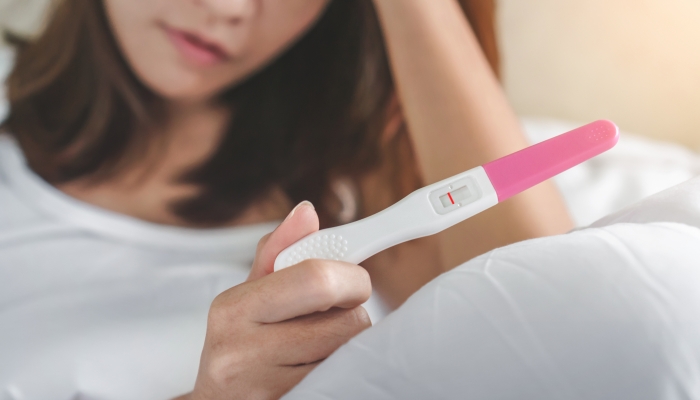
- Twin pregnancies can cause extremely high hCG levels.
- Pregnancy tests can give a negative result if too much hCG is present in the urine; this is sometimes called the “hook effect.”
- False negative tests due to high levels of hCG are uncommon, but possible.
- Diluting urine before using a home pregnancy test can counteract the high dose hook effect.
Whether you are trying to conceive or wondering about a surprise baby, pregnancy tests are generally a highly reliable way to confirm whether a person is pregnant or not. However, they aren’t perfect. False positive pregnancy tests are almost unheard of, but there are several reasons a woman might have a false negative.
False negative tests are usually a result of too little pregnancy hormone due to early testing. Surprisingly, high hormone levels can also result in a false negative test.
Hormone levels rise significantly during pregnancy and are higher during pregnancy of multiple children. So, can twins cause a false negative pregnancy test?
Can Twins Cause a False Negative Pregnancy Test Result?
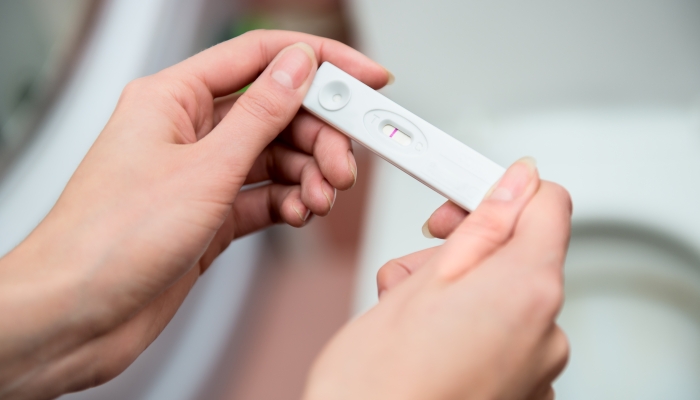
The short answer is yes—although it’s not common, it’s possible for the high levels of hCG in a twin pregnancy to cause a false negative pregnancy test result.
Pregnancy tests work by measuring urine levels of a hormone called human chorionic gonadotropin (hCG). All humans have a small amount of this hormone circulating in their system at all times, but it rises significantly during pregnancy.
When a fertilized egg implants into the uterus, the growing placenta begins to release more hCG. In twin and triplet pregnancies, hormone levels spike even higher. Surprisingly, high levels of hCG can cause a false negative pregnancy test. This means that mothers pregnant with twins may get false negative results, even in early pregnancy.
How Common Are False Negative Pregnancy Tests in Twin Pregnancy?
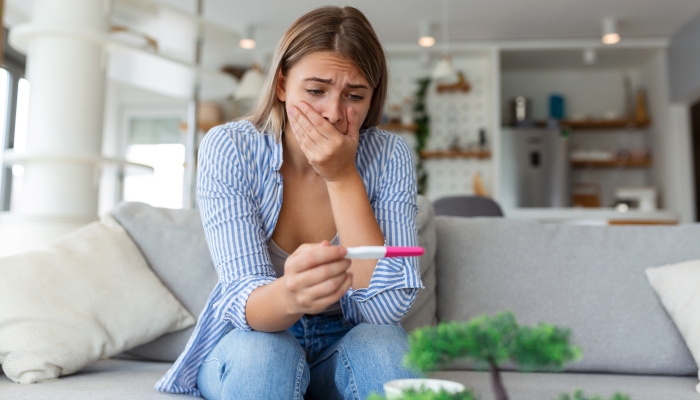
When hCG levels are too high, a urine digital pregnancy test can be overwhelmed and produce a false negative result. This is known by experts as the “hook effect.” While there are many documented cases of the hook effect11. Griffey, R. T., Trent, C. J., Bavolek, R. A., Keeperman, J. B., Sampson, C., & Poirier, R. F.. “Hook-like effect” causes false-negative point-of-care urine pregnancy testing in emergency patients. The Journal of Emergency Medicine. 2013;44(1), 155–160. https://doi.org/10.1016/j.jemermed.2011.05.032 causing a false negative pregnancy test result in twin pregnancies, it’s relatively rare.
Most home pregnancy tests can detect hCG at concentrations of about 20mlU/ml. In a typical pregnancy, this typically happens around three to four weeks after your last menstrual period. HCG usually rises soon after implantation.
In a typical pregnancy, hCG increases quickly at the beginning of pregnancy, and then levels begin to normalize. Usually, hCG levels increase in the following pattern after your last menstrual period (LMP):
| Weeks since LMP | HCG levels (mlU/mL) |
| 3 weeks | 5–50 |
| 4 weeks | 5–426 |
| 5 weeks | 18–7,340 |
| 7–8 weeks | 7,650–229,000 |
| 9–12 weeks | 25,700–288,000 |
| 13–16 weeks | 13,300–254,000 |
| 17–24 weeks | 4,060–165,4000 |
| 24–40 weeks | 3,640–117,000 |
Blood hCG levels higher than 25mlU/ml are usually reached by the second week after the LMP and will result in a positive pregnancy test. After that, hCG levels will double about every 72 hours until about eight weeks of pregnancy.
What Are Other Causes of a False Negative Pregnancy Test?

Twin pregnancies are not the only cause of false negative pregnancy tests. Experts at the Mayo Clinic have identified several reasons22. Mayo Clinic Staff. Home pregnancy tests: Can you trust the results? Mayo Clinic. 2022. https://www.mayoclinic.org/healthy-lifestyle/getting-pregnant/in-depth/home-pregnancy-tests/art-20047940 you may get a negative pregnancy test result when you are actually pregnant.
Incorrect Use
While urine pregnancy tests are fairly easy to figure out, there are some common mistakes that women make when using them. When using home pregnancy tests, make sure that you hold the test in your urine stream for long enough, that you do not wait too long after using the test to check your result, and that you use a fresh urine sample for your test.
Testing Too Early
If you are very early in your pregnancy, hCG concentrations will not be high enough to show up on a test. You should wait for a few days after your missed period to make sure there is enough hCG in your urine to give you an accurate result.
Testing Too Late
Just like twin pregnancies can cause a false negative by overwhelming the test with too much hCG, testing too late into pregnancy can also cause inaccurate results. Remember that a high concentration of hCG in blood or urine can make pregnancy tests ineffective.
Expired Test
Always check the expiration date on a home pregnancy test before you use it. An expired test may give you a negative result when you actually are pregnant.
Diluted Urine
Pregnant women may get a negative pregnancy test if their urine is too diluted. This can happen if you take your test late in the day or drink large amounts of water. Most healthcare providers recommend taking a pregnancy test first thing in the morning when hCG levels are highest in the urine.
Ectopic Pregnancy
Unfortunately, an ectopic pregnancy may give you a false negative test result. In an ectopic pregnancy, your body may not produce hCG as much as it would during a normal pregnancy. Ectopic pregnancies can be dangerous, and if you have a suspicion of ectopic pregnancy you should see your healthcare provider as soon as possible.
What to Do if You Think You Got a False Negative Pregnancy Test
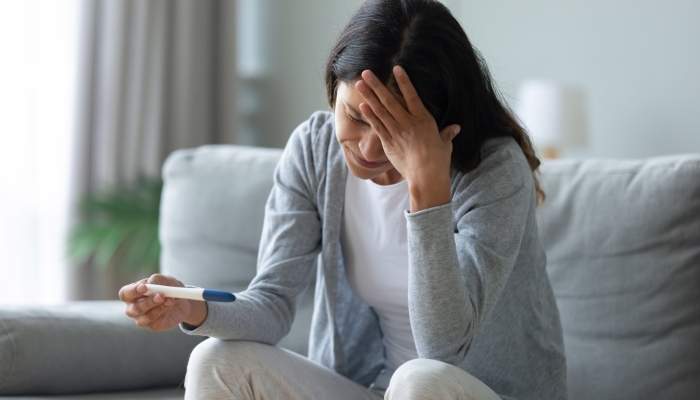
If you are getting negative pregnancy test results a few days after a missed period and are experiencing other pregnancy symptoms, there’s a chance you are getting a false negative result.
If you think you got a false negative pregnancy test, there are a few things you can do:
- Wait a few days and test again.
- Get a blood test done at your physician’s office.
- Try a different brand of pregnancy test.
- Take another test first thing in the morning.
- Add some water to your urine before testing if you think your hCG levels are too high.
The best thing to do if you are experiencing pregnancy symptoms is speak to your healthcare provider. A medical doctor or advanced practice provider can perform blood tests and ultrasound imaging to confirm pregnancy test results.
FAQs
Are there any specific types of pregnancy tests that are more accurate for detecting twin pregnancies?
No specific brand of pregnancy test has been shown to be more accurate than others for detecting twin pregnancies. While blood tests are more accurate for identifying very early pregnancies, they are not better for avoiding the hook effect of false negatives in twin pregnancies.
If you believe you’re pregnant but are getting negative test results, your healthcare provider may be able to perform an ultrasound to find out for sure whether or not you’re pregnant.
Do I have to follow any specific precautions or guidelines when taking a pregnancy test with the suspicion of a twin pregnancy?
If you get a negative pregnancy test but feel like you’re pregnant, it’s possible that your hormone levels are too high for the test. You can add a few spoonfuls of water to your urine test to dilute the urine and bring the urine hCG levels down to a concentration that won’t overwhelm the test.
How long should I wait after a negative pregnancy test to retest if I suspect I might be carrying twins?
If you get a negative pregnancy test, wait a few days before you test again. If you’re more than two weeks late for your period and are experiencing other pregnancy symptoms, but are still getting negative pregnancy test results, it may be time to speak to your doctor.
What are some medical tests or procedures that I can undergo to confirm a twin pregnancy?
The most accurate way to confirm a twin pregnancy is through ultrasound imaging. By visualizing your uterus, a doctor and ultrasound technician work together to look for two growing babies. You do not need any invasive procedures like a cervix check to confirm a twin pregnancy.
References
- Griffey, R. T., Trent, C. J., Bavolek, R. A., Keeperman, J. B., Sampson, C., & Poirier, R. F. (2013). “Hook-like effect” causes false-negative point-of-care urine pregnancy testing in emergency patients. The Journal of Emergency Medicine, 44(1), 155–160. https://doi.org/10.1016/j.jemermed.2011.05.032
- Mayo Clinic Staff. (2022, December 23). Home pregnancy tests: Can you trust the results? Mayo Clinic. https://www.mayoclinic.org/healthy-lifestyle/getting-pregnant/in-depth/home-pregnancy-tests/art-20047940
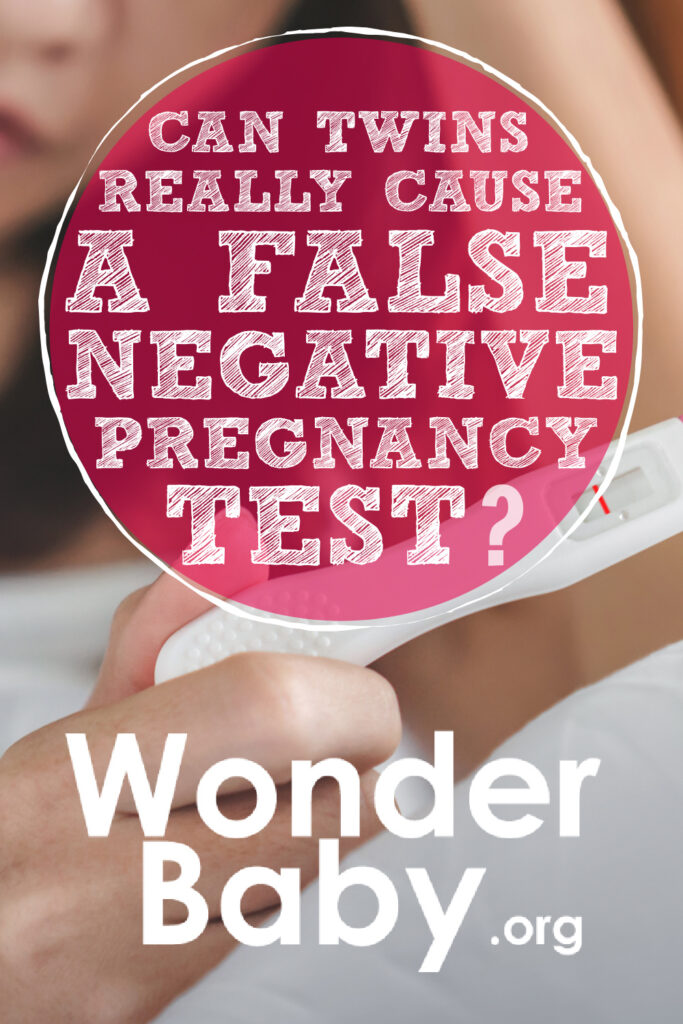
The information WonderBaby provides is not intended to be, and does not constitute, medical or other health advice or diagnosis and should not be used as such. Always consult with a qualified medical professional about your specific circumstances.
Related Posts
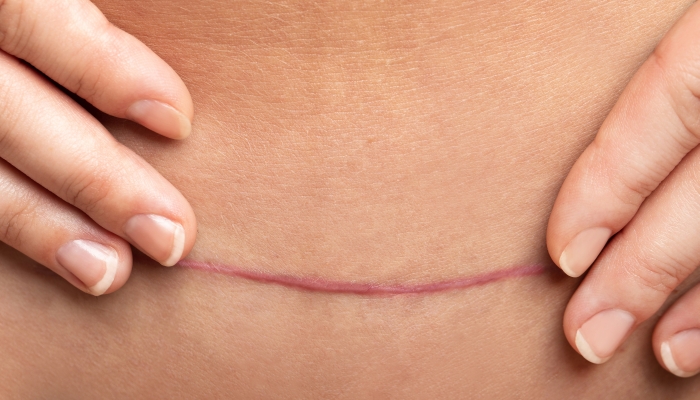
Pregnancy
How To Deal With an Ingrown Hair on a C-Section Scar
Ingrown hairs on a C-section scar can be treated using a warm compress or mild exfoliation. Infected ingrown hairs may require antibiotic treatment.
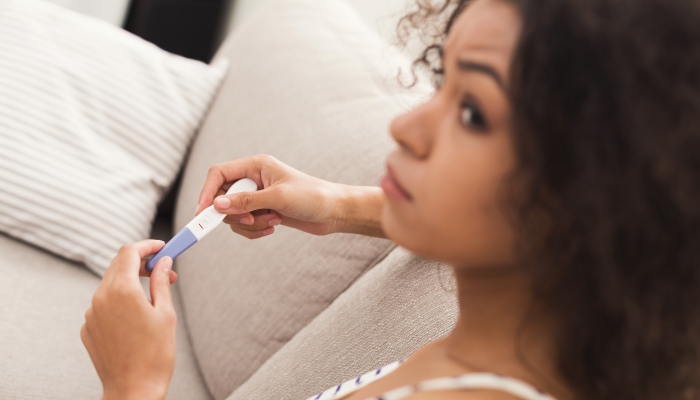
Pregnancy
What’s a Dye Stealer Pregnancy Test?
A dye stealer pregnancy test usually means that your hCG levels are very high, which is typically considered a good sign for pregnancy.
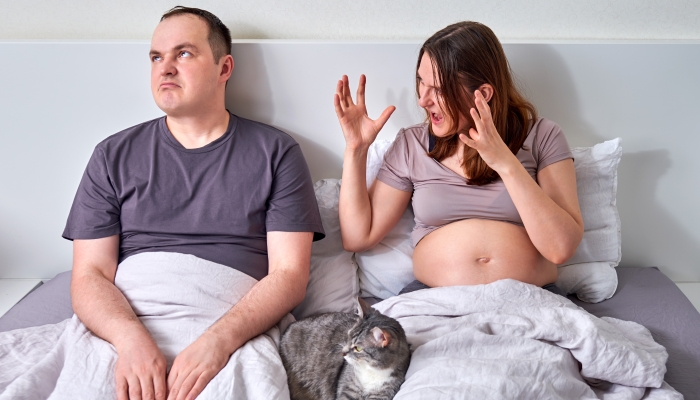
Pregnancy
Can Yelling Cause a Miscarriage?
Yelling alone can not cause a miscarriage. However, maternal stress can cause high blood pressure, preterm labor, and other health problems.